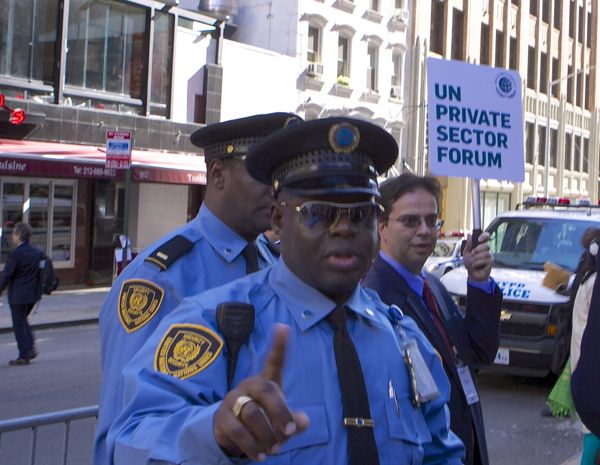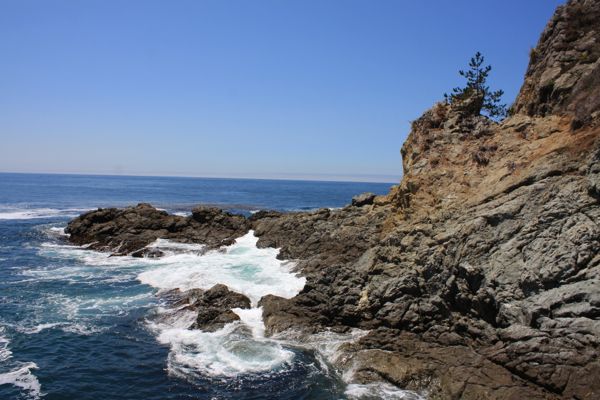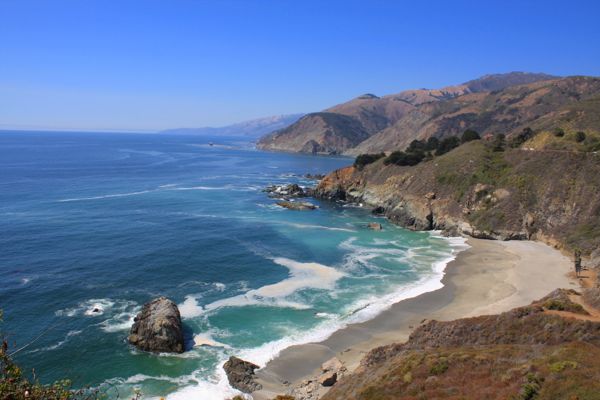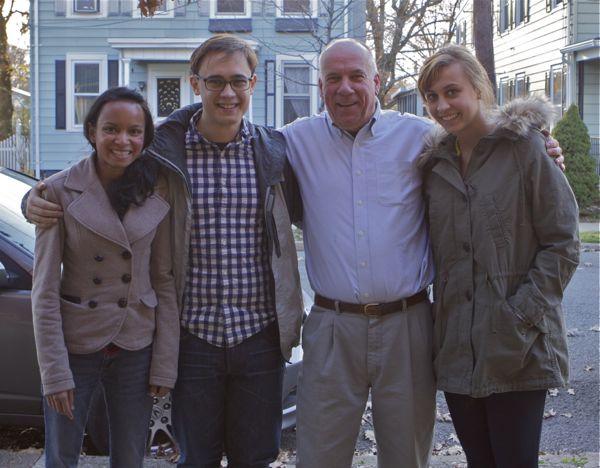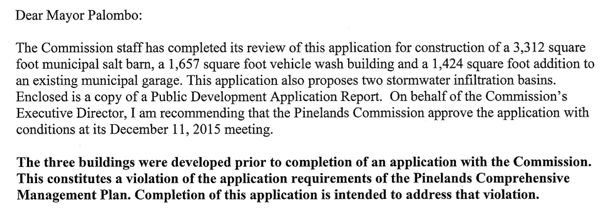Environmental Community unified in opposition
Christie DEP proposes a radical departure from 30 years of watershed planning
The DEP held the third and final public hearing today at their Trenton HQ on a proposed “overhaul” of the Water Quality Management Planning rules. The public comment period expires on December 28.
[Update 12/1/15 – NJ Spotlight “explainer” presents an overview and the perspectives of the various groups who testified at the hearing. It is far too “balanced” to meet Spotlight’s asserted mission to look out for the public interest. The proposal is a radical departure from a 30 year consensus and evolution in water quality and land use planning. One example of just how radical Christie DEP is the fact that even Governor Christie “Open For Business” Whitman went to Princeton University to make a speech about “Sewers, the Last Frontier in Sprawl“. Christie Whitman issued an Executive Order # 109 that involved septic and enhanced environmental reviews 15 years ago~~~ end update]
The DEP essentially is proposing to decouple water quality planning and various limiting environmental analyses from any enforceable regulatory standards or permit requirements. This is a result of longstanding opposition to these DEP regulatory requirements by the politically powerful development community.
At the same time, DEP would defer critical land use and water quality decisions to local governments, while simultaneously eliminating current safeguards that local governments must adopt via ordinance. This deference to “home rule” land use powers also reflects longstanding local resentment of DEP requirements that local land use decisions must meet state water quality standards and protect natural resources.
My apologies for failure to prepare a detailed summary of the complex DEP proposal. (see Part 1 of a promised series I never finished Here are my initial set up story and thoughts on the first hearing in Morris County).
For a Cliff Notes summary of what this WQMP proposal would do, see the DEP’s “Stakeholder” powerpoint summary (reader warning: accurate, but the justifications for the proposal and conclusions are highly spun).
Aside from the elimination of current municipal ordinance requirements under the cover of “streamlining nitrate dilution analysis” and “elimination of non-point source pollution program requirements” (see below), perhaps the 3 most extreme rollbacks in that proposal are:
1) elimination of current “consistency” requirements that projected wastewater flows from a sewer service area are consistent with the sewage treatment plant’s permitted flow. For example, if the local sewage treatment plant has 5 MGD available capacity, DEP would not approve a water quality management plan that would create 15 MGD in additional wastewater flows from new development. The current requirements are a fundamental of NJ’s long time “capacity based infrastructure planning” required by the 1972 federal Clean Water Act and championed by the 1985 NJ State Planning Act;
2) elimination of current requirements to demonstrate adequate water supply to serve new development in the wastewater plan. Again, this is a fundamental element of capacity based infrastructure planning and it is highly irresponsible to eliminate these requirements. Repeal will only create unrealistic development expectations and huge conflicts between wastewater and water supply for future individual DEP permits to resolve. This is particularly ill advised when DEP has failed to update the Water Supply Master Plan for 20 years and adopt enforceable water budgets, particularly in many deficit watersheds and critical groundwater regions;
3) elimination of the current formal consistency review process, which requires permit compliance with sewer service area designations, assignments to treatment facilities, identification of adequate water supply capacity, and NPS standards. The Water Quality Planning Act prohibits DEP from issuing any permit that is inconsistent with an areawide water quality management plan. In 2008, DEP adopted a specific list of permits that they would not issue until all WQMP requirements were met.
The Christie DEP’s proposed elimination of this requirement is a flat out violation of statute, obviously inconsistent with legislaive intent, and a likely violation of federal requirements as well.
Business group supporters of the DEP proposal have sat on the sidelines during the two prior hearings, but lobbyists finally turned out today to praise DEP for providing regulatory”flexibility” and encouraging economic growth. The fact that lobbyists who know nothing at WQMP planning were following DEP talking points was revealed when Sarah Blum of NJ BIA said that the rules would create better “synergy” in DEP permit programs (she obviously got that from DEP’s Stakeholder briefing – see link above).
The League of Municipalities and Association of Environmental Authorities also supported aspects of the proposal, while a consultant for a handful of sewer authorities both praised and raised concerns about how the rule might eliminate groundwater and stream buffer protections at developments of less than 50 units.
DEP is proposing a massive deregulation of groundwater and development. For example, towns that should have 6 -8 acre minimum zoned lot sizes based on septic density nitrate dilution to protect groundwater will be allowed to develop on currently zoned 1 acre lots.
Not surprisingly, the League of Municipalities particularly supported DEP’s deference to municipal land use planning and the elimination of current requirements that Towns adopt: 1) stream buffer, 2) steep slope, 3) storm water management and 4) zoning ordinances to protect groundwater, based on a nitrate dilution model.
I have called DEP’s elimination of these local ordinance requirements a completely irresponsible abdication of the State’s responsibility under cleans water laws to assure that local land use decisions protect water resources.
Because DEP relied on these local ordinances to demonstrate compliance with federal EPA approved requirements, particularly the municipal storm water permit program (MS4), this deletion is a likely violation of federal EPA delegated Clean Water Act requirements. DEP flags this issue in their own Municipal Stormwater Permit (MS4) Tier A Guidance document:
The requirement that the applicant preserve and maintain 300-foot “special water resource protection areas” along all waters designated “Category One” in the Department’s Surface Water Quality Standards at N.J.A.C. 7:9B, and along perennial or intermittent streams that drain into or upstream of the Category One waters as shown on the U.S. Geological Survey (USGS) Quadrangle Maps or in the County Soil Surveys, within the associated hydrologic unit code 14 (HUC14) drainage.
The requirement in the Tier A Permit for “compliance with the applicable design and performance standards established under N.J.A.C. 7:8” pertains to all applicable design and performance standards established under the Stormwater Management rules, not just to the “Stormwater runoff quality standards” in N.J.A.C. 7:8-5.5.
The WQMP proposal’s deletion of current municipal stream buffer ordinance requirements and elimination of the Environmentally Sensitive Area and non-point source pollution control local ordinance requirements is the same issue as the prior Flood Hazard proposal’s deletion of the SWRPA and NJAC 7:85.5(h) anti-degradation policy in the storm water management rules.
The local buffer and stormwater ordinances and DEP SWRPA regulations function as EPA approved water quality measure and a the DEP’s EPA approved MS4 NPDES permit requirement.
EPA raised exactly this objection in DEP’s proposed Flood Hazard Act rules that would eliminate municipal “SWRPA” buffer ordinances and protections in the storm water management rules. In a July 30, 2015 letter, EPA warned:
Section 402 of the Clean Water Act established the National Pollutant Discharge Elimination System (NPDES) program and allows EP A to authorize states to implement NPDES permit programs. On April 13,1982, EPA authorized New Jersey to implement such a program. EPA’s NPDES permitting regulations at 122.44(1), which are applicable to state NPDES programs, require permits, when renewed or reissued, to include interim effluent limitations, standards or conditions at least as stringent as the final effluent limitations, standards or conditions in the previous permit. New Jersey’s Municipal Separate Storm Sewer System (MS4) permits cross-reference the state’s SWM rules and require compliance with those rules. If changes to the Storm water Management rules result in a less stringent permit condition, this would constitute backsliding in violation of EP A’s permit regulations. EPA recommends that fact sheets for the NJPDES MS4 permits affected by these changes clearly detail how these rule revisions maintain the same level of stringency and do not result in backsliding.
There are addition federal Clean Water Act compliance issues that we will raise with US EPA – more on that in a future post.
The Association of Environmental Authorities (AEA) supported DEP’s policy that the WQMP rules will no longer authorize DEP to withdraw wastewater service area designations if the WMP agency fails to submit a timely WMP. The DEP relied on recent NJ legislation to justify this policy. More on that in a future post.
AEA also supported DEP’s decoupling of water quality planning from DEP permit program requirements (known as mandatory “consistency review”); repeal of current prohibition on extending sewers into environmentally sensitive areas; and the elimination of current requirements to conduct what are known as “antidegradation reviews” in the planning process. This may violate EPA anti degradation requirements because this DEP rule change would effectively grandfather current DEP permitted flows. Sewage treatment plants historically were issued permits with these flows without conducting anti degradation of water quality studies to justify them. As a result, the DEP permits over allocate “assimilative capacity” of the receiving rivers and streams, especially when considering cumulative point source pollutant loadings and non-point source pollution from intensive land development and agricultural sources.
I was pleased to see ANJEC, American Littoral Society (ALS), Environment NJ, Stonybrook Watershed and Clean Water Action (formerly NJEF) testify in opposition today after missing the prior north and south jersey hearings.
They joined Sierra Club, NJ Conservation Foundation and the Highlands Coalition in opposing the DEP’s proposal.
Emile DeVito of NJCF was particularly effective and highly critical of the threatened and endangered species habitat provisions of the proposal, regarding the Habitat Suitability Determination and Habitat Impact Assessment.
DeVito blasted those changes as “amorphous promises masquerading as science”, “marketing having nothing to do with science”, and nothing more than the “unscientific, speculative guesswork” of consultants for developers that would cause irreparable harm that can not be mitigated.
Devito criticized the fact that independent scientific experts on the Endangered NonGame Species Advisory Committee had been bypassed and cut out of the policy process.
Doug O’Malley of Environment NJ did a good job in linking the rollbacks to the policies and statements of Governor Christie.
In addition, I noted that the proposal failed to consider impacts on the pending ecological collapse of Barnegat Bay, suggesting that Gov. Christie’s 10 Point Management Plan was a sham.
I challenged DEP’s false statements about an inclusive robust stakeholder process and about so called deference to the Highlands Council.
I questioned whether the 180,000 acres of environmentally sensitive lands previously removed from sewer service areas under the prior 2008 rules can be brought back in as a result of “streamlining” the planning process (via site specific amendment, etc).
I noted that the septic density modeling to protect groundwater was very limited.
Residential wastewater discharged to septic systems contains numerous toxic household chemicals, as well as biologically active compounds like pharmaceuticals. DEP does not monitor and set groundwater standards for these chemicals, but instead relies on nitrate as an “indictor” parameter of overall groundwater pollution from septic systems. Additionally, the nitrate standards are based on a 10 mg/L drinking water standard that is not fully protective of sensitive populations, like infants, and do not consider ecological effects.
So, DEP’s proposal to relax an already limited groundwater nitrate approach was particularly ill advised.
Unfortunately, I forgot to mention the new 13,000 acres in sewer service area in Pinelands Villages.
More to follow on this – in the meantime, please get your comments in to DEP by 12/28, see:
Written comments may be submitted electronically by December 28, 2015 at http://www.nj.gov/dep/rules/comments; or
In hard copy to:
Gary Brower
ATTN: DEP Docket No.10-15-09
NJ Department of Environmental Protection
Office of Legal Affairs
Mail Code 401-04L; PO Box 402
401 East State Street, 7th Floor
Trenton, NJ 08625-0402
